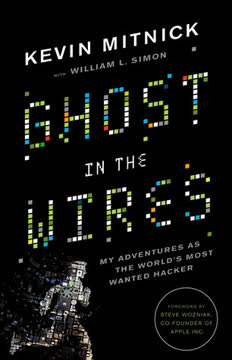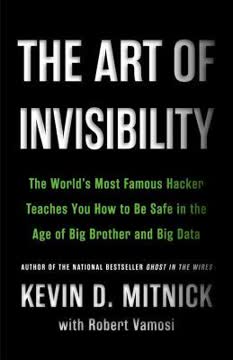النقاط الرئيسية
1. صعود المراقبة الجماعية في العصر الرقمي
لقد ساعدت في جعل جمع جميع الاتصالات الرقمية في العالم من قبل حكومة واحدة أمرًا ممكنًا تقنيًا، وتخزينها لفترات طويلة، والبحث فيها متى شاءت.
الثورة التكنولوجية: بعد أحداث 11 سبتمبر، سعت أجهزة الاستخبارات إلى بناء نظام لمنع الهجمات المستقبلية. وقد أدى ذلك إلى توسع هائل في قدرات المراقبة، وكان الشباب التقنيون مثل سنودن في طليعة هذا التطور.
تحول في جمع المعلومات: انتقل التركيز من مراقبة أفراد محددين إلى مراقبة جماعية للسكان بأكملهم، وقد تحقق ذلك بفضل:
- التقدم في تقنيات تخزين البيانات ومعالجتها
- زيادة رقمنة الاتصالات الشخصية
- تطوير خوارزميات متقدمة لتحليل البيانات
نطاق غير مسبوق: أصبحت أنظمة المراقبة الجديدة قادرة على:
- جمع وتخزين كميات هائلة من البيانات إلى أجل غير مسمى
- البحث في اتصالات أي شخص تقريبًا على كوكب الأرض
- العمل بأقل قدر من الرقابة أو المعرفة العامة
2. رحلة سنودن من الوطني إلى المُبلغ عن المخالفات
أدركت أن الكشف للصحفيين عن مدى انتهاكات بلدي لن يكون دفاعًا عن شيء راديكالي، مثل تدمير الحكومة أو حتى أجهزة الاستخبارات، بل سيكون عودة إلى السعي لتحقيق المبادئ التي أعلنتها الحكومة وأجهزة الاستخبارات نفسها.
صحوة تدريجية: لم تكن تحوُّل سنودن من موظف استخبارات وطني إلى مُبلغ عن المخالفات مفاجئًا، بل كان نتيجة عملية اكتشاف وتأمل أخلاقي تدريجي.
إدراكات رئيسية:
- تجاوزت المراقبة ما كان معروفًا للجمهور بكثير
- عملت العديد من برامج المراقبة بانتهاك الحقوق الدستورية
- غياب الرقابة والمساءلة داخل النظام
- وجود إمكانات هائلة لسوء استخدام هذه الصلاحيات
معضلة أخلاقية: واجه سنودن صراعًا بين قسم السرية الذي أداه وواجبه تجاه الدستور والجمهور، وفي النهاية قرر أن كشف الحقيقة أهم من الحفاظ على السرية.
3. خصخصة الاستخبارات وتبعاتها
أصبح التعاقد هو غطائي، كما هو الحال مع معظم الجواسيس التقنيين في جيلي.
التحول إلى القطاع الخاص: اعتمدت أجهزة الاستخبارات بشكل متزايد على المتعاقدين الخاصين لتجاوز قيود التوظيف الفيدرالية والوصول إلى مهارات تقنية متخصصة.
تداعيات الخصخصة:
- تداخل خطوط المساءلة
- تضارب محتمل في المصالح
- دوران الأبواب بين الحكومة والقطاع الخاص
- زيادة التكاليف على دافعي الضرائب
هيمنة المتعاقدين: بحلول عام 2013، كان الموظفون الخاصون يؤدون أعمال الاستخبارات بنفس وتيرة موظفي الحكومة، حيث بلغ عدد المتعاقدين الدائمين في أجهزة الاستخبارات أكثر من 21,800.
4. المعضلة الأخلاقية بين سرية الحكومة وحق الجمهور في المعرفة
لا يمكن قياس حرية أي بلد إلا باحترامه لحقوق مواطنيه، وأنا مقتنع بأن هذه الحقوق هي في الواقع قيود على سلطة الدولة تحدد متى وأين لا يجوز للحكومة التدخل في مجال الحريات الشخصية أو الفردية، التي كانت تُسمى "الحرية" خلال الثورة الأمريكية و"الخصوصية" خلال ثورة الإنترنت.
توازن دقيق: عانى سنودن من التوتر بين احتياجات الأمن القومي وشفافية الديمقراطية.
اعتبارات رئيسية:
- حق الجمهور في معرفة أنشطة الحكومة
- الحاجة إلى مستوى معين من السرية في العمليات الاستخباراتية
- خطر سوء الاستخدام عند غياب الرقابة على المراقبة
- دور المبلغين عن المخالفات في الحفاظ على المساءلة الديمقراطية
نهج سنودن: اختار تسليم الوثائق للصحفيين بدلاً من نشرها مباشرة، مما سمح بالتحقق المسؤول والتقارير الدقيقة.
5. قوة ومخاطر الوصول غير المقيد إلى البيانات الشخصية
أدركت، بينما كان أحدهم يشرح لي تفاصيل روتين أمان أهدافه، أن الصور العارية التي تم اعتراضها كانت نوعًا من العملة غير الرسمية في المكتب، لأن زميله كان يدور على كرسيه ليقطع حديثنا بابتسامة قائلاً: "انظر إليها"، وكان مدربي يرد دائمًا بـ "مكافأة!" أو "جميلة!"
إمكانية سوء الاستخدام: يمكن أن يؤدي الوصول غير المقيد إلى البيانات الشخصية إلى استغلالها، حتى داخل القنوات الرسمية.
أمثلة على سوء الاستخدام:
- LOVEINT: محللون يستخدمون أدوات المراقبة للتجسس على اهتماماتهم العاطفية
- تبادل الصور والمعلومات الشخصية بين الزملاء
- إمكانية الابتزاز أو التلاعب بالأهداف
غياب المساءلة: الطبيعة السرية لبرامج المراقبة جعلت من الصعب محاسبة أو معاقبة من يسيء استخدام صلاحياته.
6. تأثير الإبلاغ عن المخالفات على العلاقات الشخصية
رغم بعدي عن الوطن، كانت أفكاري مشغولة بليندسي. كنت حذرًا من سرد قصتها — قصة ما حدث لها بعد رحيلي: استجوابات مكتب التحقيقات الفيدرالي، المراقبة، الاهتمام الإعلامي، التحرش الإلكتروني، الارتباك والألم، الغضب والحزن.
تضحية شخصية: كان لقرار سنودن بأن يصبح مُبلغًا عن المخالفات تأثير عميق على حياته الشخصية وعلاقاته.
عواقب على الأحبة:
- تدقيق مكثف من قبل أجهزة الأمن ووسائل الإعلام
- ضغوط نفسية وحالة من عدم اليقين
- تبعات قانونية ومالية محتملة
- توتر العلاقات بسبب السرية والبعد
توازن صعب: كان على سنودن أن يوازن بين مسؤولياته الشخصية وما رآه واجبًا أخلاقيًا أكبر لكشف فساد الحكومة.
7. الانتشار العالمي وتداعيات تكنولوجيا المراقبة
أصبح الإنترنت جزءًا لا يتجزأ من حياتنا مثل الهواء الذي تنتقل من خلاله العديد من اتصالاته. وكما نُذكّر دائمًا — في كل مرة تنبهنا فيها وسائل التواصل الاجتماعي إلى منشور يضعنا في موقف محرج — فإن رقمنة شيء ما تعني تسجيله بصيغة تدوم إلى الأبد.
طبيعة شاملة: تؤثر تكنولوجيا المراقبة الحديثة على كل جانب تقريبًا من الحياة الرقمية على مستوى العالم.
تداعيات رئيسية:
- تآكل الخصوصية على نطاق عالمي
- إمكانيات للتجسس السياسي والاقتصادي
- تحديات للسيادة الوطنية في الفضاء السيبراني
- الحاجة إلى معايير وتنظيمات دولية
عواقب طويلة الأمد: تؤدي رقمنة المعلومات الشخصية إلى إنشاء سجلات دائمة يمكن الوصول إليها وتحليلها بلا حدود، مما يثير مخاوف بشأن سوء الاستخدام المستقبلي وحق النسيان.
آخر تحديث::
FAQ
What's "Permanent Record" by Edward Snowden about?
- Memoir of Whistleblowing: "Permanent Record" is Edward Snowden's memoir detailing his journey from a young technologist to a whistleblower who exposed the U.S. government's mass surveillance programs.
- Surveillance State: The book provides an in-depth look at the intrusive surveillance apparatus of the NSA and CIA, highlighting how it threatens privacy and democratic institutions.
- Personal Story: Snowden shares his personal experiences, ethical dilemmas, and the events that led him to leak classified documents to journalists.
- Impact on Society: The memoir discusses the implications of mass surveillance on individual freedoms and the importance of transparency and accountability in government.
Why should I read "Permanent Record" by Edward Snowden?
- Insight into Surveillance: The book offers a rare insider perspective on the operations of the NSA and CIA, making it essential reading for those interested in privacy and civil liberties.
- Ethical Dilemmas: Snowden's story raises important questions about the balance between national security and individual rights, prompting readers to consider their own views on these issues.
- Historical Significance: As a key figure in one of the most significant whistleblowing cases in history, Snowden's account provides valuable context and understanding of the events that shaped modern surveillance practices.
- Engaging Narrative: The memoir is well-written and engaging, combining technical details with personal anecdotes to create a compelling narrative.
What are the key takeaways of "Permanent Record" by Edward Snowden?
- Mass Surveillance: The book reveals the extent of the U.S. government's mass surveillance capabilities and the lack of oversight and accountability in these programs.
- Privacy vs. Security: Snowden emphasizes the importance of protecting individual privacy and civil liberties, even in the face of national security concerns.
- Whistleblowing Challenges: The memoir highlights the personal and professional risks involved in whistleblowing, as well as the ethical considerations that guided Snowden's actions.
- Call to Action: Snowden urges readers to be vigilant about their privacy rights and to advocate for greater transparency and accountability in government.
What are the best quotes from "Permanent Record" by Edward Snowden and what do they mean?
- "The government may steal a dollar, but it cannot erase the idea that earned it." This quote reflects Snowden's belief in the power of ideas and the importance of standing up for one's principles, despite government attempts to suppress dissent.
- "The freedom of a country can only be measured by its respect for the rights of its citizens." Snowden underscores the fundamental connection between individual rights and true freedom, critiquing governments that infringe on personal liberties.
- "The Internet of today is unrecognizable." This quote highlights Snowden's lament over the transformation of the Internet from a space of creativity and connection to one dominated by surveillance capitalism.
- "I decided to tell the truth." This simple yet powerful statement encapsulates Snowden's motivation for leaking classified documents, driven by a commitment to transparency and accountability.
How did Edward Snowden's career lead to his whistleblowing actions?
- Early Career: Snowden began his career in the Intelligence Community (IC) as a young technologist, quickly rising through the ranks due to his technical expertise.
- Mass Surveillance Realization: Over time, he became aware of the shift from targeted surveillance to mass surveillance, which he helped make technologically feasible.
- Moral and Ethical Conflict: Snowden struggled with the ethical implications of his work, ultimately deciding that his allegiance to the Constitution and public interest outweighed his secrecy agreements.
- Decision to Leak: His growing awareness of the government's abuses and the lack of public consent led him to collect evidence and disclose it to journalists.
What is "Homo Contractus" in "Permanent Record" by Edward Snowden?
- Definition: "Homo Contractus" refers to the privatization of government services, where private contractors perform tasks traditionally handled by government employees.
- Corruption and Loopholes: Snowden describes how this system allows for corruption and circumvents federal hiring caps, leading to a lack of accountability and oversight.
- Impact on Intelligence Community: The reliance on contractors in the IC results in sensitive systems being managed by individuals who do not directly work for the government.
- Critique of Privatization: Snowden criticizes this trend as a means of transferring public money to private entities, undermining the integrity of public service.
How does "Permanent Record" by Edward Snowden address the concept of surveillance capitalism?
- Surveillance Capitalism Defined: Snowden explains how companies monetize human connection by inserting themselves into social exchanges and selling user data.
- Transformation of the Internet: The book discusses the shift from a creative and cooperative Internet to one dominated by commercial interests and surveillance.
- Loss of Privacy: Snowden highlights how personal data is collected and sold without users' knowledge, leading to a pervasive sense of violation.
- Government Involvement: The memoir reveals how governments, including the U.S., exploit surveillance capitalism to gain intelligence, often without public consent.
What role did the Internet play in Edward Snowden's life, according to "Permanent Record"?
- Early Influence: Snowden describes the Internet as a formative influence, providing a sense of community and connection during his youth.
- Technological Expertise: His deep understanding of computers and the Internet facilitated his rapid rise in the Intelligence Community.
- Disillusionment: Snowden laments the commercialization and surveillance of the Internet, contrasting it with the open and creative space he once knew.
- Catalyst for Action: The Internet's transformation into a tool for mass surveillance motivated Snowden to take action and expose government abuses.
How does "Permanent Record" by Edward Snowden explore the ethical dilemmas of whistleblowing?
- Conflict of Allegiances: Snowden grapples with his loyalty to the government versus his commitment to the Constitution and public interest.
- Moral Responsibility: He reflects on the point at which he felt morally obliged to break the law and disclose classified information.
- Risk and Sacrifice: The memoir details the personal and professional risks Snowden faced, including potential imprisonment and exile.
- Principles and Ideals: Snowden emphasizes that his actions were guided by a desire to uphold democratic ideals and protect individual freedoms.
What is the significance of the "Tunnel" chapter in "Permanent Record" by Edward Snowden?
- Symbolic Tunnel: The chapter uses the metaphor of a tunnel to represent Snowden's journey toward his decision to leak classified documents.
- Hawaii Experience: Snowden describes his time working at an NSA facility in Hawaii, where he gained a comprehensive understanding of mass surveillance.
- Turning Point: The chapter marks a pivotal moment in Snowden's life, as he becomes fully aware of the implications of his work and the need for action.
- Insight into Surveillance: It provides detailed insights into the NSA's operations and the extent of its surveillance capabilities.
How does "Permanent Record" by Edward Snowden address the impact of mass surveillance on society?
- Erosion of Privacy: Snowden argues that mass surveillance undermines individual privacy and civil liberties, posing a threat to democratic institutions.
- Chilling Effect: The book discusses how surveillance creates a climate of fear and self-censorship, stifling free expression and dissent.
- Global Implications: Snowden highlights the international reach of U.S. surveillance programs, affecting citizens worldwide without their knowledge or consent.
- Call for Reform: The memoir advocates for greater transparency, accountability, and public debate on surveillance practices to protect individual rights.
What is the "Young Readers Edition" of "Permanent Record" by Edward Snowden, and how does it differ from the original?
- Adaptation for Youth: The Young Readers Edition is a version of Snowden's memoir adapted for younger audiences, with simplified language and content.
- Content Modifications: It omits certain chapters and details, such as "Homo Contractus" and "The Tunnel," to make the material more accessible to teens.
- Focus on Key Themes: The edition retains the core themes of privacy, surveillance, and ethical decision-making, while removing some complex or sensitive content.
- Educational Purpose: The adaptation aims to engage young readers in discussions about privacy rights and the impact of technology on society.
مراجعات
يحظى كتاب "السجل الدائم" بإشادة واسعة لما يتميز به من سرد مشوق وكشف مثير للدهشة حول مراقبة الحكومات. يثني القراء على شجاعة سنودن ونزاهته، معتبرين دوافعه مفهومة وأفعاله مبررة. ويراه كثيرون بطلاً لكشفه انتهاكات الخصوصية. يقدم الكتاب نظرة معمقة على نشأة سنودن، ومسيرته في مجال الاستخبارات، وقراره بأن يصبح مُبلغًا عن المخالفات. وعلى الرغم من أن بعض النقاد يرون في أجزاء منه مصلحة ذاتية، إلا أن الغالبية تعتبره قراءة مهمة وجذابة تثير تساؤلات جوهرية حول الخصوصية والديمقراطية في عصر الرقمنة.
Similar Books














